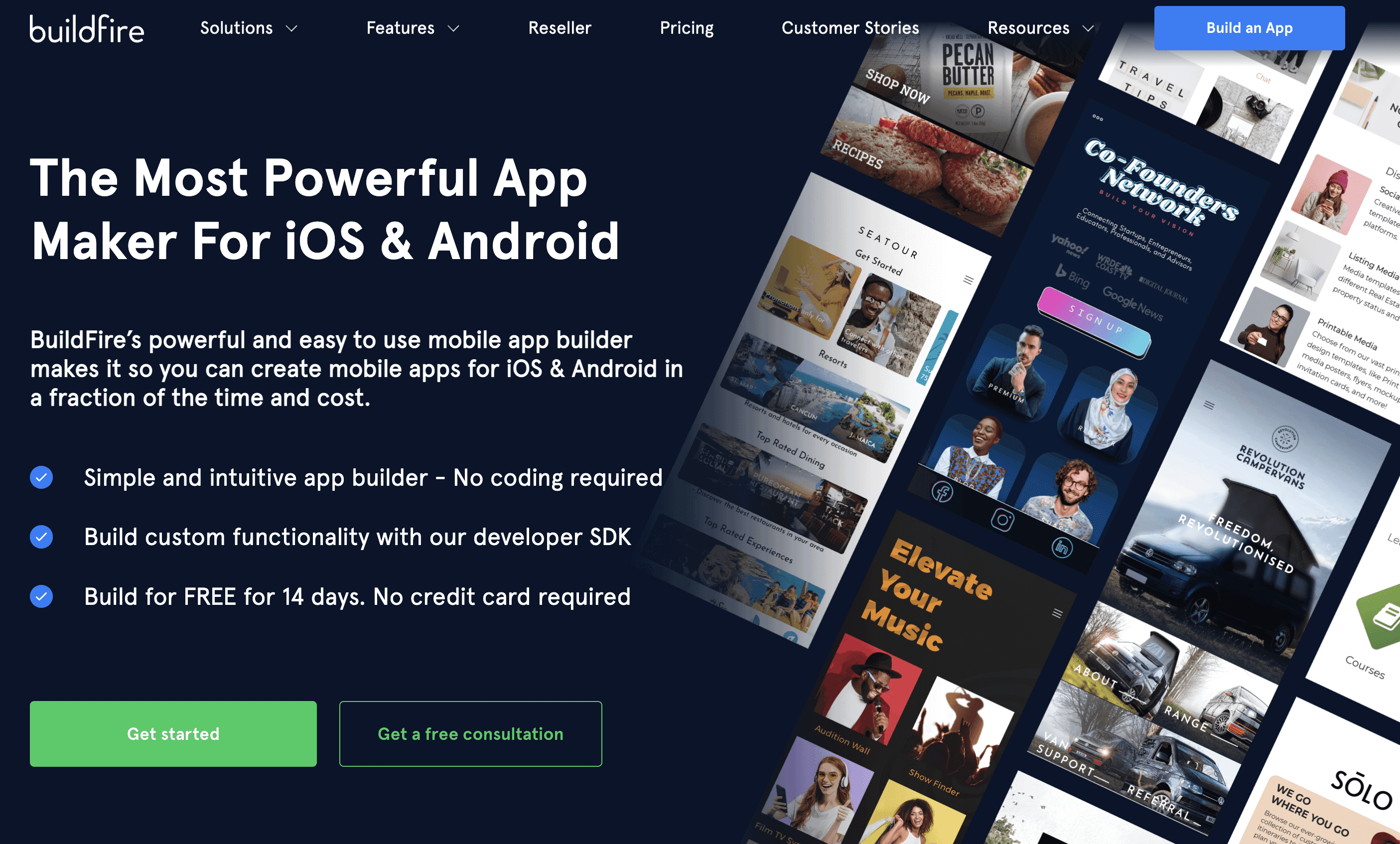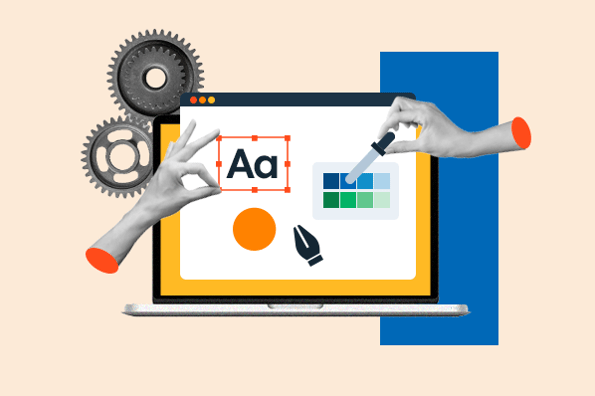The best platforms for creating websites are WordPress and Wix. Both offer user-friendly interfaces and extensive customization options.
WordPress is highly versatile and ideal for both beginners and advanced users. It offers numerous themes and plugins, making it easy to create a unique website. Wix, on the other hand, is a drag-and-drop builder suitable for those who prefer simplicity.
It provides various templates and an intuitive interface. Choosing between WordPress and Wix depends on your specific needs and skill level. WordPress is better for complex, scalable websites, while Wix is perfect for quick, straightforward site creation. Both platforms are SEO-friendly, ensuring your site can rank well on search engines.

Content Management Systems
Choosing the right Content Management System (CMS) is crucial for creating a successful website. A CMS helps you manage and publish your content easily. Here, we explore three popular CMS options: WordPress, Joomla, and Drupal.
WordPress
WordPress is the most popular CMS. It powers over 40% of all websites. WordPress is known for its user-friendly interface and extensive plugin library.
- Easy to use
- Large community support
- Thousands of themes and plugins
Developers love WordPress for its flexibility. It is suitable for blogs, business sites, and e-commerce.
Joomla
Joomla is a versatile CMS. It is known for its advanced features. Joomla is more complex than WordPress but offers greater control over your website.
- Flexible and powerful
- Robust user management
- Over 8,000 extensions
Joomla is ideal for social networks and membership sites. It has strong multilingual support and built-in SEO tools.
Drupal
Drupal is a highly customizable CMS. It is designed for developers. Drupal offers advanced features and high security.
- High performance
- Scalable and secure
- Over 39,000 modules
Drupal is perfect for complex and large websites. It is used by government and enterprise-level sites.
| CMS | Ease of Use | Flexibility | Community Support |
|---|---|---|---|
| WordPress | ★★★★★ | ★★★★☆ | ★★★★★ |
| Joomla | ★★★☆☆ | ★★★★☆ | ★★★★☆ |
| Drupal | ★★☆☆☆ | ★★★★★ | ★★★☆☆ |
Website Builders
Creating a website has become easier with website builders. These platforms offer a range of tools to help you build a site. They are user-friendly and perfect for beginners. Below, we will explore some popular website builders.
Wix
Wix is a popular choice for many. It offers a drag-and-drop editor. This makes it easy to design your website. You do not need coding skills. You can choose from over 500 templates. These templates are customizable. Wix also offers a free plan. But it comes with ads.
- User-friendly
- 500+ templates
- Free plan available
Squarespace
Squarespace is known for its sleek designs. It is perfect for creatives. You get beautiful templates to showcase your work. Squarespace offers an all-in-one platform. This includes hosting and domain services. It provides excellent customer support.
- Sleek designs
- All-in-one platform
- Great customer support
Weebly
Weebly is another great choice. It is easy to use. You can create a website quickly. Weebly offers an intuitive drag-and-drop editor. It is perfect for small businesses. The platform also provides eCommerce tools.
- Easy to use
- Quick setup
- eCommerce tools
| Feature | Wix | Squarespace | Weebly |
|---|---|---|---|
| Templates | 500+ | Beautiful designs | Professional |
| Ease of Use | Very easy | Moderate | Very easy |
| Support | Good | Excellent | Good |
E-commerce Platforms
Choosing the right e-commerce platform is crucial for online businesses. Each platform offers unique features and benefits. Here, we will explore three popular options: Shopify, Magento, and BigCommerce.
Shopify
Shopify is user-friendly and perfect for beginners. It offers a variety of customizable templates. This platform supports over 100 payment gateways.
- Drag-and-drop builder: Easy to design without coding.
- SEO tools: Built-in tools for better search rankings.
- App Store: Thousands of apps to extend functionality.
Shopify also provides 24/7 customer support. It integrates well with social media platforms.
Magento
Magento is highly customizable and scalable. It is ideal for large businesses with complex needs. Developers can modify every aspect of the store.
- Open-source: Free to download and customize.
- Advanced SEO: Offers powerful SEO capabilities.
- Robust security: High-level security features.
Magento requires more technical knowledge. It offers a wide range of extensions and themes.
Bigcommerce
BigCommerce combines ease of use with powerful features. It is great for businesses of all sizes. This platform provides strong built-in features.
- Responsive design: Mobile-friendly templates.
- SEO capabilities: Helps improve search engine rankings.
- No transaction fees: Keep more of your earnings.
BigCommerce offers reliable customer support. It integrates with various third-party apps and services.
| E-commerce Platform | Main Feature | Best For |
|---|---|---|
| Shopify | User-friendly | Beginners |
| Magento | Highly customizable | Large businesses |
| BigCommerce | Built-in features | All sizes |

Code-based Tools
Code-based tools are essential for creating websites. These tools provide flexibility and control. Developers use various languages and frameworks to build functional and beautiful websites.
Html/css
HTML stands for HyperText Markup Language. It is the backbone of web pages. HTML structures the content on the web.
CSS stands for Cascading Style Sheets. It styles the HTML content. CSS makes web pages look appealing.
| Feature | HTML | CSS |
|---|---|---|
| Purpose | Structure | Styling |
| Syntax | Tags | Selectors |
Javascript Frameworks
JavaScript frameworks make coding easier. They provide ready-to-use components.
- React is a popular framework. It is used for building user interfaces.
- Angular is another powerful framework. It is used for building dynamic web apps.
- Vue.js is known for its simplicity. It is easy to integrate with projects.
Using frameworks saves time. They also improve code quality.
Bootstrap
Bootstrap is a front-end framework. It is used for creating responsive websites.
Bootstrap provides pre-designed components. Examples include buttons, forms, and navigation bars.
Here is a sample Bootstrap button code:
Bootstrap helps in maintaining consistency. It also speeds up the development process.
Hosting Services
Choosing the right hosting service is crucial for your website’s success. Different hosting services offer unique benefits. Let’s explore the most popular options.
Shared Hosting
Shared hosting is the most affordable option. It’s great for beginners and small websites. Here, multiple websites share a single server. This reduces costs but can affect performance. If one site gets a lot of traffic, others may slow down.
Benefits of shared hosting:
- Low cost
- Easy to set up
- Basic technical knowledge required
Drawbacks of shared hosting:
- Limited resources
- Potential for slower speeds
- Less control over the server
Vps Hosting
VPS hosting stands for Virtual Private Server. This option is more expensive than shared hosting. It offers more control and better performance. Each site gets a dedicated portion of the server.
Benefits of VPS hosting:
- More control over the server
- Better performance
- Scalable resources
Drawbacks of VPS hosting:
- Higher cost
- Requires technical knowledge
Cloud Hosting
Cloud hosting uses multiple servers to host websites. This ensures high availability and reliability. If one server fails, others take over. This makes cloud hosting a robust option.
Benefits of cloud hosting:
- High reliability
- Scalable resources
- Better performance
Drawbacks of cloud hosting:
- Higher cost
- Requires technical expertise
Choosing the right hosting service depends on your needs and budget. Make sure to consider all the factors before making a decision.

Seo And Analytics Tools
Creating a website is only half the battle. To ensure your site reaches its audience, you need powerful SEO and Analytics tools. These tools help you track performance, optimize for search engines, and understand visitor behavior. Below, we will explore some of the best tools available.
Google Analytics
Google Analytics is a must-have tool for any website owner. It provides in-depth insights into your website traffic. You can see where your visitors come from, what they do on your site, and how long they stay.
- Track visitor demographics
- Analyze user behavior
- Measure site performance
Google Analytics is free and easy to use. It integrates well with other Google services.
Semrush
SEMrush is a powerful SEO tool. It helps you find keywords, track rankings, and analyze competitors. SEMrush offers a comprehensive suite of features:
| Feature | Description |
|---|---|
| Keyword Research | Find high-performing keywords. |
| Site Audit | Identify and fix site issues. |
| Backlink Analysis | Monitor and manage backlinks. |
With SEMrush, you can improve your site’s SEO and stay ahead of competitors.
Yoast Seo
Yoast SEO is a popular WordPress plugin. It helps optimize your website for search engines. Yoast SEO offers features like:
- Content Analysis
- Keyword Optimization
- Readability Check
Yoast SEO provides actionable suggestions for improving your content. It also helps you create SEO-friendly titles and meta descriptions.
Using Yoast SEO can significantly boost your site’s visibility on search engines.
Design And Prototyping Tools
Creating a website involves several crucial steps. One of the most important is using the right design and prototyping tools. These tools help bring your ideas to life and ensure the final product is user-friendly and visually appealing. Let’s explore some of the best tools available today.
Adobe Xd
Adobe XD is a popular choice for many designers. It offers a seamless workflow for creating and sharing prototypes. Adobe XD allows you to design, prototype, and share all in one tool. You can create interactive prototypes with ease, and it integrates well with other Adobe products.
Features of Adobe XD include:
- Vector-based design tools
- Interactive prototypes
- Voice prototyping
- Coediting and collaboration
Adobe XD is perfect for both beginners and professionals. It offers a free starter plan, making it accessible to everyone.
Figma
Figma is a cloud-based design tool that is gaining popularity. Figma allows real-time collaboration, making it ideal for teams. You can design, prototype, and gather feedback all in one place. Figma’s cloud-based nature means you can work from anywhere.
Key features of Figma include:
- Real-time collaboration
- Cloud-based storage
- Interactive prototypes
- Version control
Figma offers a free plan with basic features, suitable for small projects. Paid plans unlock more advanced functionalities.
Sketch
Sketch is a vector-based design tool known for its simplicity. Sketch is highly favored by designers working on macOS. It offers a robust plugin ecosystem, making it very versatile. Sketch is ideal for creating high-fidelity prototypes and design systems.
Notable features of Sketch include:
- Vector editing tools
- Reusable components
- Collaborative workspaces
- Extensive plugin library
Sketch offers a free trial, and its licensing model is subscription-based. It is a top choice for professional designers.
| Tool | Best For | Key Features |
|---|---|---|
| Adobe XD | All-in-one design and prototyping | Vector tools, interactive prototypes, voice prototyping |
| Figma | Real-time collaboration | Cloud-based, version control, interactive prototypes |
| Sketch | High-fidelity designs on macOS | Vector editing, reusable components, plugins |
Frequently Asked Questions
What Is The Best Platform For Creating Websites?
The best platform depends on your needs. WordPress is great for flexibility, while Wix offers ease of use.
Is WordPress Good For Beginners?
Yes, WordPress is beginner-friendly. It offers numerous plugins and themes for easy customization.
Should I Use A Website Builder?
Website builders like Wix or Squarespace are ideal. They offer drag-and-drop features for easy website creation.
Is Coding Necessary To Create A Website?
No, coding is not necessary. Platforms like WordPress and website builders make it easy without coding.
Conclusion
Choosing the best platform for creating websites depends on your needs and goals. Consider ease of use, customization, and budget. Popular options include WordPress, Wix, and Squarespace. Analyze features to find the perfect match for your project. Make an informed choice to ensure your website’s success and growth.
